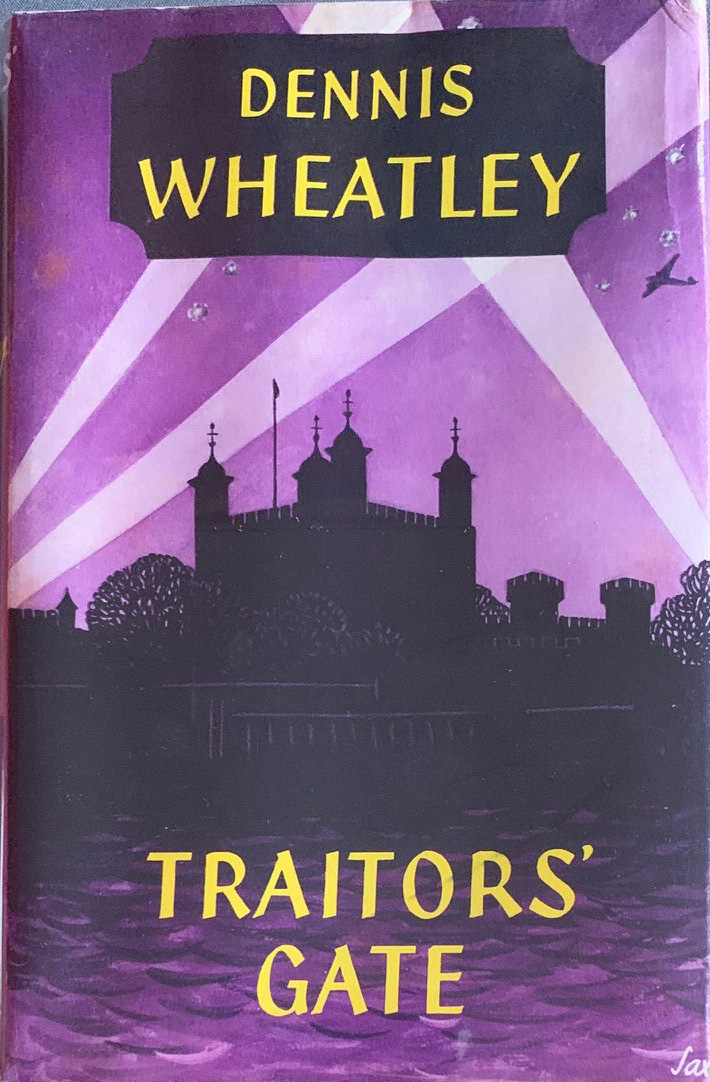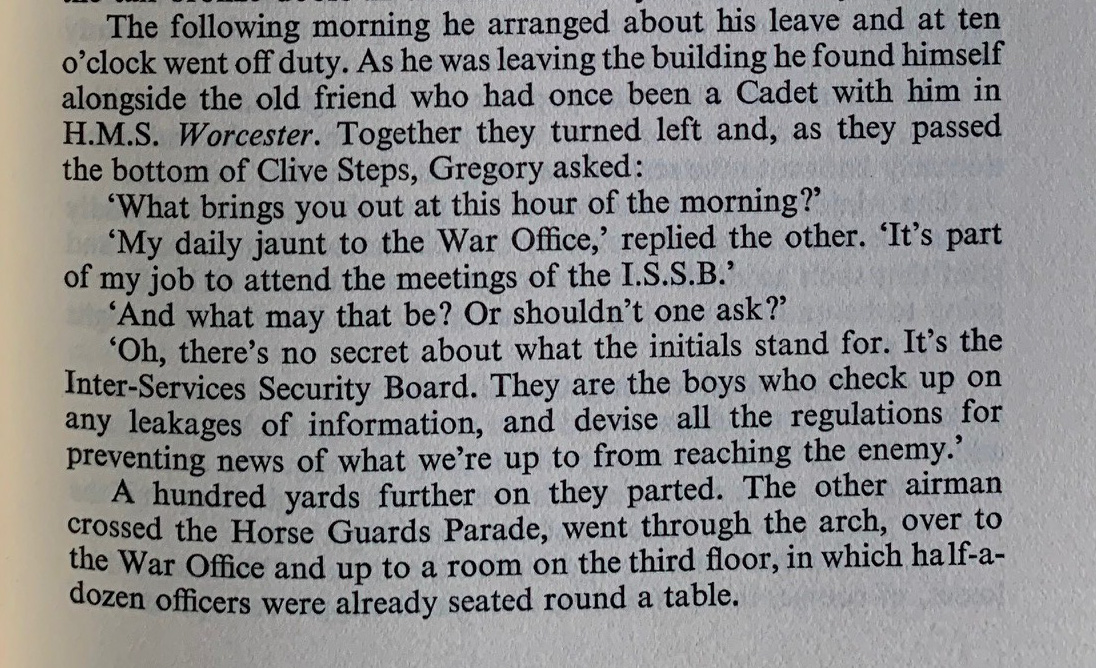
 |
Floor Plan |  |
The Dennis Wheatley 'Museum' - Dennis Wheatley in World War II: a supplement
Fact and fiction mingle in DW's WW2 novel 'Traitors' Gate' (1958)
DW was fond of saying that he started his Roger Brook novels because after the war he was so stuffed full of secrets that he dared not write anything contemporary for fear of giving something classified away - although it must be observed that despite this, he did write his World War Two novels 'Codeword - Golden Fleece' and 'Come Into My Parlour' in 1946.
DW made a dramatic departure from his resolution after a decade had passed, when in 1958 he not only wrote another wartime Gregory Sallust novel - 'Traitors' Gate' - but by using Deception as one of its key themes.
Indeed, although the middle three-quarters of the book is concerned with an abortive mission Gregory takes to Hungary to try to bring it into the war on the side of the Allies, the beginning and the end of this highly sophisticated (and very successful) book are so rich in what we now know to be true detail that the book is almost mandatory reading for anyone interested in the final - and most secret - phase of DW's wartime career.
The story, which DW dedicated to Ronald Wingate, begins with a meeting of various members of the Joint Planning Staff in the officers' mess in Churchill's underground fortress, at which they discuss the prospects for Operation Torch - the operation in which DW and Johnny Bevan 'won their spurs'.
It would only have been apparent at the time to the very few in the know, but many of these characters were based on real people. There is for example a Group Captain 'who always appeared to be a little sleepy, but was never quite as sleepy as he looked' who is clearly Frank Inglis, and there is another character who is clearly Dudley Clarke. DW goes even further when he introduces into the conversation'... a Lt. Colonel, his fair hair slightly ruffled and his blue eyes a little blurred from having sat up until one in the morning reading Staff Papers', and who is later addressed as 'Johnny' - whom all insiders will have instantly recognised as Johnny Bevan. Later on, DW brings in the Secretary to the Inter-Services Security Board (ISSB), and describes him as 'A middle-aged Major of the Royal Scots who had among his ribbons an M.C. with bar'. Insiders will have immediately recognised him as Eddie Combe. DW even includes 'Pug' Ismay, (then) Brigadier Hollis and (then) Colonel Jacob in the book by name.
But this is far from the end of the book's brush with the real world. At the beginning of the story, Gregory receives his call-up papers, and to avoid his being assigned to the life of a conscript, Sir Pellinore arranges for Gregory to be pushed ahead of others into the uniform of an RAF Officer, as a result of which, at short notice, Gregory has to attend an Officers' training course at Uxbridge - so for a short while, Gregory (who, like DW, is described as having been a cadet on H.M.S. Worcester; something DW had also written into an earlier Gregory Sallust novel) becomes DW's alter ego.
DW then proceeds to introduce himself (and his step-daughter Diana, who has dinner with Gregory Sallust) into the plot. While on duty in the Map Room, Gregory becomes friends with his own creator, because he becomes friends with a fellow cadet from H.M.S Worcester who - unlike the others - had not been to Staff College, who was involved with special planning, and who worked with a 'one-legged Colonel who had previously been Chief Instructor at the Intelligence College at Matlock' - which is an extremely accurate description of DW's early wartime colleague, Fritz Lumby.
All in all, the book must have caused vast amusement to those few 'in the know', who will have recognised themselves and their friends in the characters in the novel, and appreciated how cleverly DW (just about) avoided giving anything secret away in the plot.
One could indeed regard this as a rather selfless book, because whereas in reality the credit for the success of the deception planning for Operation Torch lay with Messrs Wheatley and Bevan, in the novel the credit for the success of the deception is ascribed to the fictional Gregory Sallust.
Thus some twenty years before DW's account of his years as a Deception Planner was published, and the year before he wrote about how it all started with his War Papers (see next Exhibit), DW used the most secret phase of his World War Two career as the backdrop to a very successful novel.



